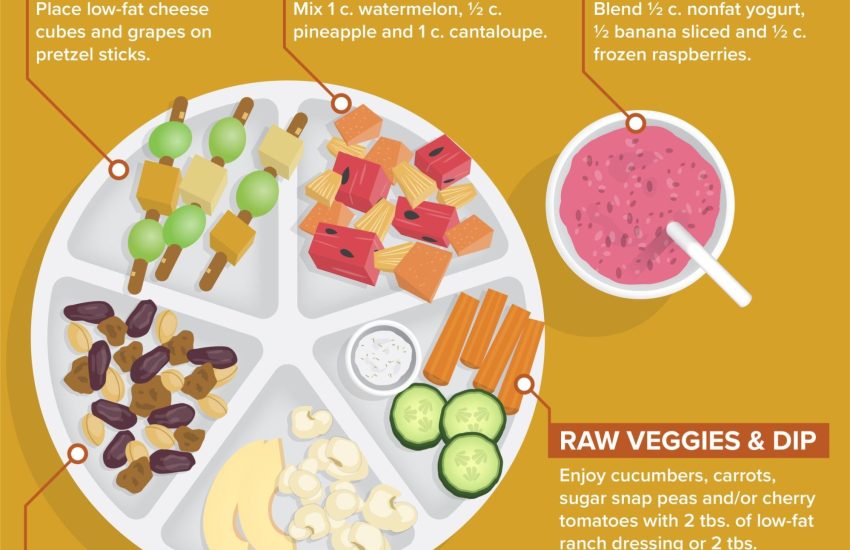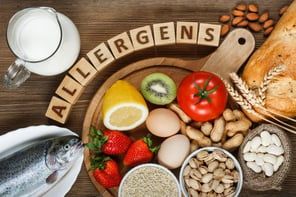Healthy Eating for Women: A Balanced Diet Guide
As women, it is crucial to prioritize our health and well-being by adopting a balanced and nutritious diet. A healthy eating plan provides the necessary nutrients and energy to support our active lifestyles, hormonal changes, and overall well-being. Here is a comprehensive guide to help you navigate through the realm of healthy eating.
Understanding the Basics
When it comes to a balanced diet, it is essential to consume a variety of food groups that offer a wide range of essential nutrients. These include:
Fruits and Vegetables
Whole Grains
Lean Proteins
Healthy Fats
Dairy Products
The Power of Fruits and Vegetables
Fruits and vegetables are a rich source of vitamins, minerals, antioxidants, and dietary fiber. Aim to include a variety of colorful produce in your meals to obtain the widest range of nutrients. Berries, leafy greens, citrus fruits, and cruciferous vegetables like broccoli and cauliflower provide immense nutritional benefits.
Selecting Whole Grains
Whole grains such as whole wheat, brown rice, quinoa, oats, and barley offer a wealth of vitamins, minerals, fiber, and complex carbohydrates. These promote good digestion, regulate blood sugar levels, and keep you feeling fuller for longer. Make sure to opt for whole grains over refined grains like white bread or pasta for optimal health benefits.
Embracing Lean Proteins
Protein is crucial for women, as it aids in muscle growth and repair, supports hormone production, and boosts metabolism. Opt for lean sources of protein like skinless poultry, fish, tofu, legumes, eggs, and low-fat dairy products. Incorporating these into your meals will provide the necessary amino acids for optimal health.
The Importance of Healthy Fats
Contrary to popular belief, not all fats are bad for you. Healthy fats like avocados, nuts, seeds, and olive oil are essential for hormone regulation, vitamin absorption, and maintaining healthy skin. However, it’s important to consume these in moderation, as fats are high in calories.
Essential Dairy Products
Dairy products like milk, yogurt, and cheese are excellent sources of calcium, vitamin D, and protein. These nutrients are vital for maintaining strong bones, teeth, and overall bone health. Opt for low-fat or non-fat dairy options to reduce your saturated fat intake.
Portion Control and Moderation
In addition to selecting the right foods, portion control is key to maintaining a balanced diet. Be mindful of your serving sizes, as excess calorie consumption can lead to weight gain and other health issues. Moderation is also crucial when it comes to indulging in occasional treats and snacks. Allow yourself small portions of your favorite foods to avoid deprivation and maintain a sustainable eating pattern.
Hydration for Optimal Health
Staying hydrated is essential for overall health and well-being. Aim to drink at least 8 glasses of water per day and increase your intake during strenuous physical activity or hot weather. Water helps flush out toxins, aids digestion, and maintains proper bodily functions.
Physical Activity and a Healthy Lifestyle
Healthy eating should be complemented by regular physical activity for optimal results. Engaging in exercise not only helps manage weight but also supports cardiovascular health, strengthens bones, and boosts mood. Aim for at least 150 minutes of moderate-intensity aerobic activity per week, including strength training exercises for muscle toning and strength.
Conclusion
In conclusion, adopting a balanced diet is crucial for women to maintain good health and overall well-being. Incorporate a variety of fruits, vegetables, whole grains, lean proteins, healthy fats, and dairy products into your meals. Remember to practice portion control, stay hydrated, and engage in regular physical activity for a well-rounded and healthy lifestyle. By prioritizing healthy eating, you are investing in your long-term health and happiness.


